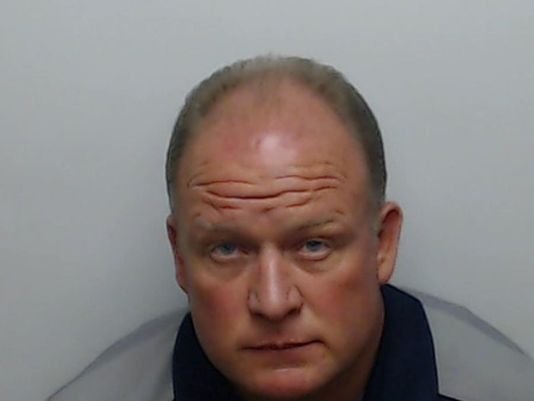
My son is 2 years and 10 months. He is a bright, affectionate, patient, obedient child. Or at least he was until about 3–4 weeks ago. At that point he decided to start fighting me on EVERYTHING. Today I told him that he couldn’t wear his shoes upstairs (he never wears his shoes in the house, far less upstairs, and he was already wearing just socks) and he threw himself down on the stairs pouting. I told him to come talk to me, and when I picked him up he refused to look at me, and when I made him, he started screaming.
Then I told him he needed to eat his carrots at lunchtime (vegetables have been our number one battle his entire life, but had been going great the last year or so), and he had a gigantic tantrum. He screamed and yelled and refused to do it. I gave him mild spankings, then he went back to the table and still refused. I told him he could go eat by himself and he told me no. So I gave him a good spanking and he laid across my lap screaming “NO! NO! I DON’T LIKE IT!!!!” continually, refusing to be quiet. Eventually he gave in, but he was still angry, not repentant.
He will throw fits about the craziest things. Yesterday we went to the park, and my mom (who had played with him the whole time) asked if he had a good time. He definitely had, but decided to say “No!” I told him that wasn’t true and it wasn’t polite and he needed to say “Yes, thank you.” He refused and threw himself down on the ground and made me drag him to the car (although he stood up right quick when I accidentally drug him through dog poop). Once in the car he tried to fight me on getting buckled and then tried to hit me.
He never used to hit me, but in the last week it is like his tantrums are not effective so he is trying more intense techniques. He refuses to answer me when I talk to him if he doesn’t feel like it. Any time I ask him to do something he doesn’t want to do, he throws himself on the floor either in a pouty lump (which to me is a quiet tantrum) or in a full-on screaming tantrum.
The mother has tried to beat her son into submission, but her assaults have proven ineffective. Here’s what she has tried so far:
I can spank him for ten minutes and he is still screaming angrily at me to stop. Today my HAND has a broken blood vessel. I know you suggest a plumber’s pipe, but my husband bought one that was way too big so I hate to use it, and end up using my hand most of the time.
….
I want to clarify, I don’t spank him nonstop for ten minutes straight. I spank him a few times, tell him to stop screaming, wait ten to thirty seconds, and if he isn’t trying to obey I spank him a few more times, and so on. I give him a swat every time he screams no (or something similar) at me. But I’m not whaling on him for ten minutes, it just takes a ten-minute block of time sometimes for him to submit.
Pearl begins by correcting the woman about using a plumber’s pipe to encourage her child in the Lord. Evidently, the woman’s husband bought a rigid PVC pipe, and not the quarter inch supply line Pearl recommends:
I have never suggested a plumber’s pipe be used to spank a child. That was the fabrication of a sodomite reporter for Salon magazine, picked up and quoted by The New York Times and repeated by CNN’s Anderson Cooper, another anti-Christian sodomite, and repeated again by Dr. Drew, the BBC, and two dozen other media outlets. In my book To Train Up a Child, I wrote of how I saw an Amish woman wearing a ¼-inch plastic plumber’s supply line around her neck on a string to be ready at hand when needed. It is flexible and will roll up in your pocket or purse. It is not PVC and it is not a pipe. I suggest any small instrument that is light and will not cause damage to tissue—like a kitchen utensil: spatula, wooden spoon, ¼-inch dowel rod, etc., but not your hand.
Pearl goes on to restate what he calls Biblical child training principles:
For the sake of our readers, especially those who are new to our material, I will briefly state the concept of traditional, common-sense child training. Children, like adults, are complex souls of conflicting drives and emotions. They [infants] come into the world with all of the passion and lust but with none of the wisdom or self-control. To say it another way, small children have a gas pedal but no steering wheel and no will to apply the brakes. Infants, toddlers, and small children require steering and restraint. Parents must apply the brakes from time to time whether the children like it or not. Children must be made to submit to the oversight of caretakers, for “a child left to himself bringeth his mother to shame” (Proverbs 29:15b).
When children are a little older (4 or 5) they are more responsive to being guided through reason and modeled behavior, but when they are two or three years old, reason is about as useful as a set of encyclopedias. Furthermore, good modeling goes unnoticed by a 2-year-old, whereas bad modeling seems to be very contagious at any age, more so when they are very young. A 2-year-old will pick up a lousy attitude like a cold in a toy store.
All psychologists and so-called “child rearing experts” agree that parents and caretakers must set boundaries, or “limits” as they sometimes call them. They also agree that parents must “enforce” those boundaries. One psychologist says, “If you don’t set and stick to clear limits, your kids will push and push until they get their way.” But the professionals don’t offer any definitive means that parents can employ to “enforce” limits. “Time outs,” where children are sent into isolation for a period of time, are not enforcement; they are abdication of authority to the attrition of time. The entire Bible verse quoted above is: “The rod and reproof give wisdom: but a child left to himself bringeth his mother to shame” (Proverbs 29:15).
Pearl spends a good bit of time analyzing the woman’s plight, looking for unstated reasons for the child’s aberrant behavior. Pearl puts much of the blame back on the mother and her inconsistent child-rearing methods. If she is consistent, Pearl says, then beating the child with the rod of correction will effectively end the child’s rebellion. He goes on to remind the woman that “the principle is that you as the lawgiver must win all contests of will. You must be the chief potentate and he the obedient servant to the rule of law.”
Michael Pearl continues to preach the gospel of ritualized child abuse. His materials are widely read in some Evangelical circles, generating $1.5 million in annual sales. I pastored numerous families over the years who thought Pearl’s book, To Train Up a Child, was the go-to text for parents wanting to practice Biblical child training. The good news is that Pearl’s sphere of influence is shrinking. Some Evangelical parents now realize that beating their children into submission is child abuse, and that there are other, more effective ways to discipline their children.


